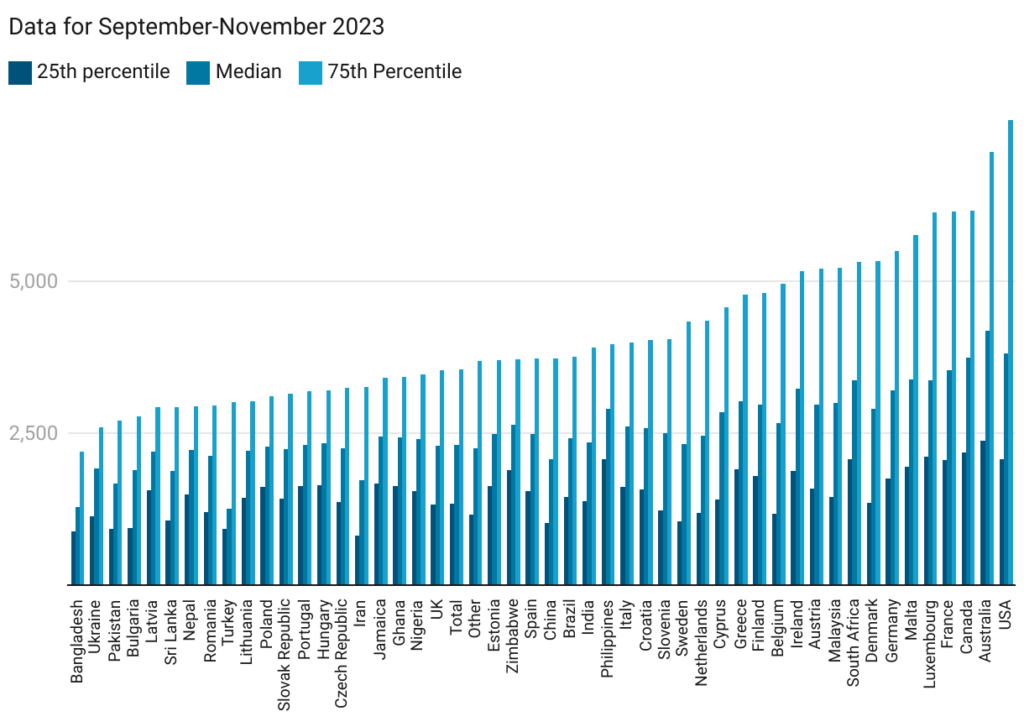The debate over immigration is often framed in terms of whether “immigrants” are good for the economy. Proponents of immigration argue that “immigrants” contribute more than they take, while opponents argue the reverse. Yet as I’ve argued before, this makes very little sense.
An immigrant is someone who was born in another country. Do people born in other countries have a general predisposition to contribute more than they take? Of course not. If they did, we could just swap the British and French populations, and – hey presto – both countries would be richer!
Some immigrants contribute more than they take and others contribute less. It depends entirely on the immigrants. In fact, it depends on factors that we can measure in surveys – such as education, reason for migration and country of origin.
For example, people with less education who come as refugees from war-torn countries in the Middle East tend to contribute less than they take. Meanwhile, people with more education who come as skilled workers from wealthy countries in Western Europe tend to contribute more than they take.
We know this is true in countries like Denmark and the Netherlands, where there have been detailed reports on the fiscal effects of immigration. But what about Britain?
The obvious place to start is average earnings. After all, people with higher earnings are more likely to be net contributors. Unfortunately, however, the Office for National Statistics doesn’t publish a breakdown of average earnings for immigrants from different countries of origin.
Enter MP Neil O’Brien. Now, you might remember O’Brien from the lockdown debate. He was one of the individuals behind the pro-lockdown website ‘Anti-Virus: The Covid-19 FAQ’, which purported to debunk claims by “Covid sceptics” and had a whole section dedicated to our very own Toby Young.
But a man can change. Or at least, he can be right on some issues and very wrong on others. And while O’Brien may have been wrong on lockdowns, he seems to be about right on immigration. In a recent Substack article, the MP presents results from an FOI request he made for earnings of different immigrant groups in Britain. Results are shown below.

What can you see? The first thing to notice is that there’s a lot of variation across groups. The highest-earning group, Australians, make an average of about £4,000 per month. (Note that although Americans earn more at the 75th percentile, Australians earn more on average.) By contrast, the lowest-earning group, Bangladeshis, make an average of about £1,200 per month.
The next thing to notice is the geographic pattern. On the right-hand side of the chart, we see countries wealthy Western countries along with South Africa (which presumably means wealthy white South Africans). And on the left-hand side of the chart, we see poorer countries in South Asia and Eastern Europe.
Britain itself is roughly in the middle of the chart. And the country is currently running a fiscal deficit, which means the average person is contributing slightly less than he or she is taking. It also means that people from all the countries to the left of Britain must be contributing less than they’re taking.
Thanks to O’Brien’s FOI request, we know that the claim “immigrants are good for the economy” isn’t true for all groups. Which raises the question: why exactly are we taking large numbers of people who aren’t good for the economy?
Stop Press: O’Brien was told by HMRC that they have stopped publishing data on tax contributions by nationality.











To join in with the discussion please make a donation to The Daily Sceptic.
Profanity and abuse will be removed and may lead to a permanent ban.